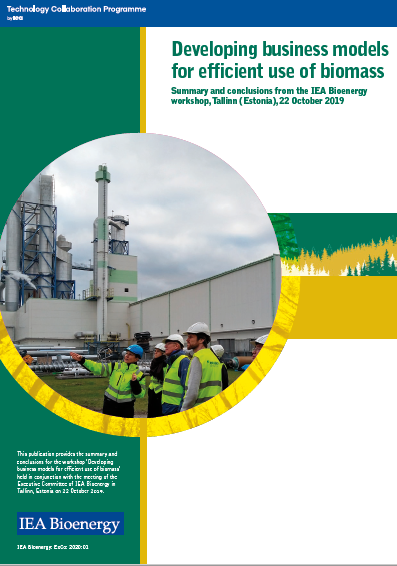New Publication – ExCo84 workshop: Developing business models for efficient use of biomass – Summary and conclusions
This publication provides the summary and conclusions from the workshop ‘Developing business models for efficient use of biomass’ held in conjunction with the meeting of the Executive Committee of IEA Bioenergy in Tallinn, Estonia on 22 October 2019. Key messages from this workshop:
- The mobilisation of biomass resources is an important prerequisite in biobased business models. Feedstock cost, diversity, supply security, as well as sustainability governance are all key considerations in setting up successful business models.
- To transition away from fossil resources, massive developments will be needed in the biobased economy. So, it is important to ensure good business models and the right investment conditions.
- First of a kind installations are inherently high risk and require substantial initial investment. Risk abatement and risk sharing will be crucial, e.g. through public funding at the initial phase (to bring technology to a certain point) and public investment funds/loan guarantees at early market introduction.
- Value creation from biomass should be maximized through a mix of technologies and end products (as is common practice in petroleum refineries).
- To increase financial viability of biobased projects, sustainability advantages (like CO2 impact) should be reflected through market value or market access.
- The biobased sector should explore and develop CO2 capture opportunities to accomplish negative emissions. Some of the early lower cost carbon capture opportunities will be at biomass facilities.
- Credits for negative CO2 emissions will be needed, which could be through taxation of CO2 emissions. Alternatively, voluntary compensation systems (CO2 removal certificates) could complement policies and provide extra revenues for net-negative businesses – that store more CO2 than they emit.



